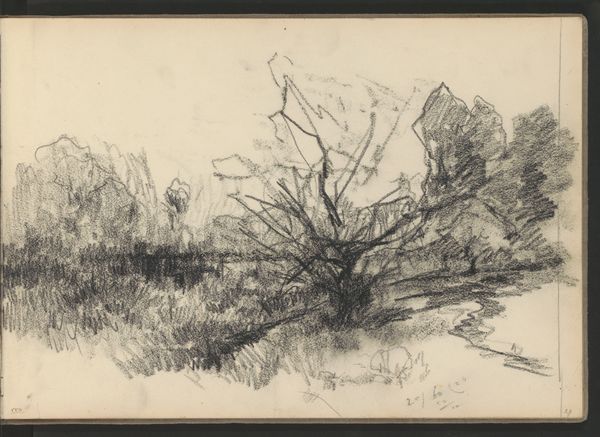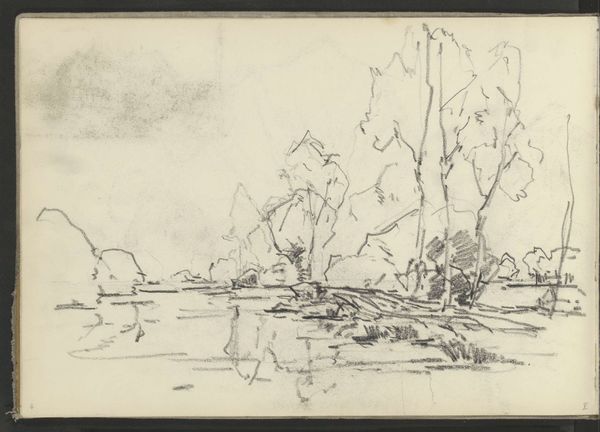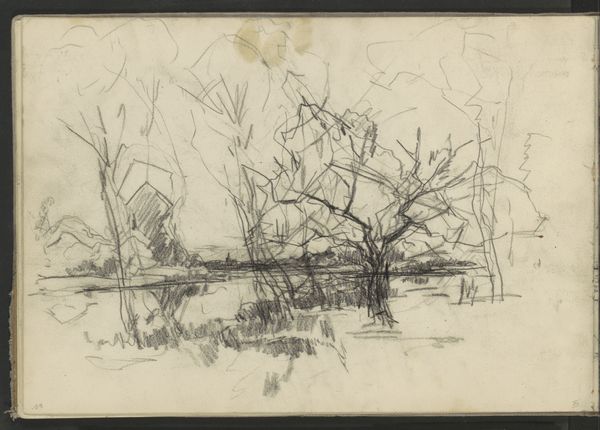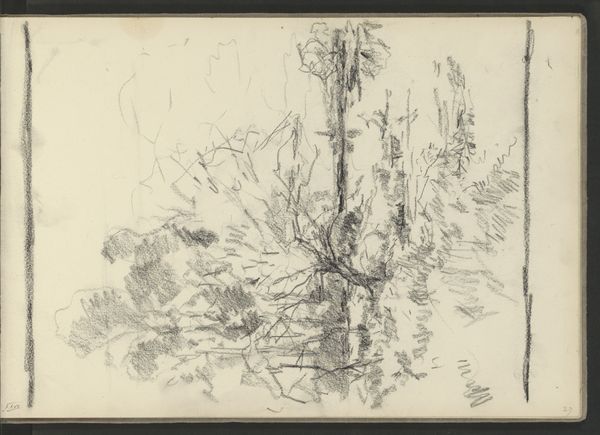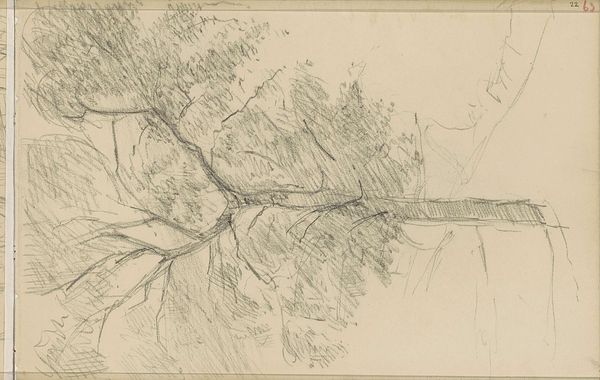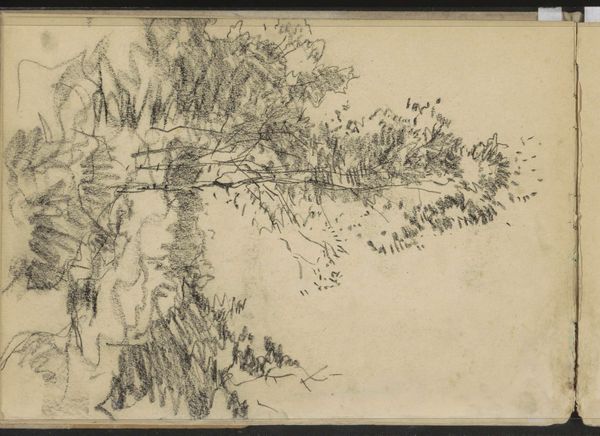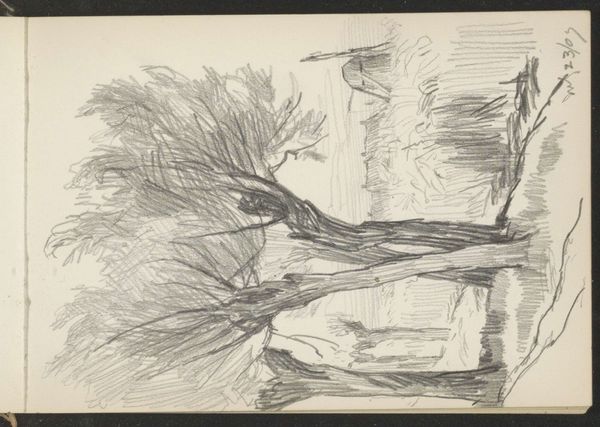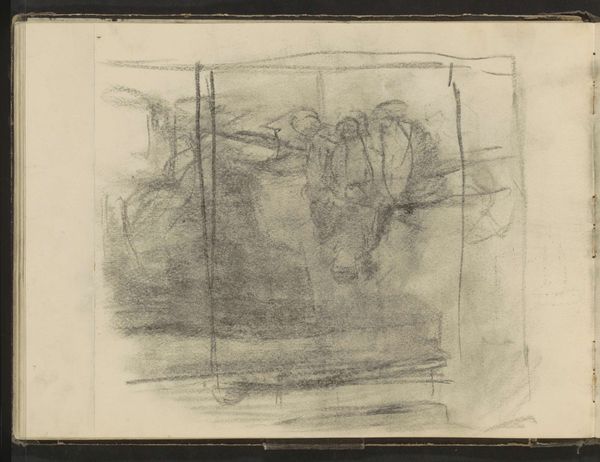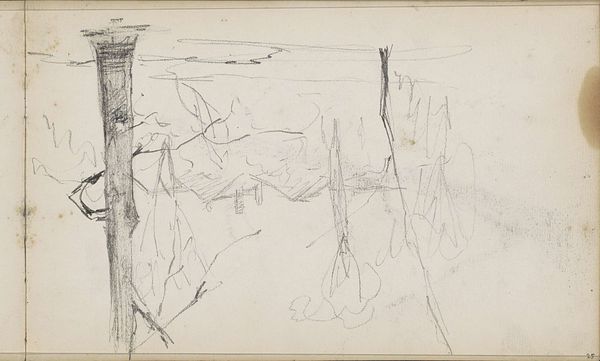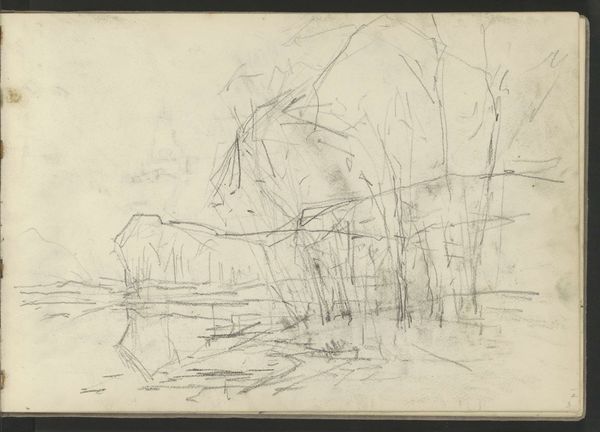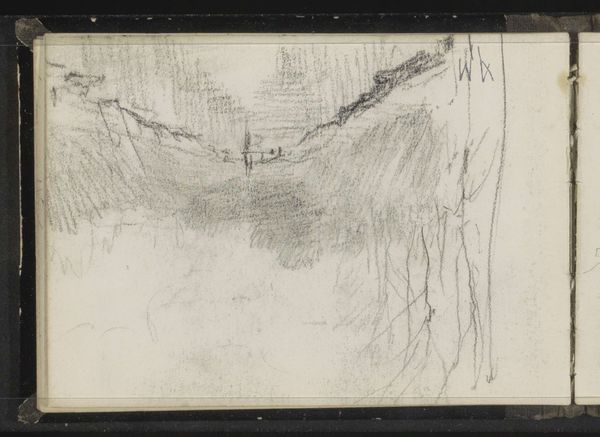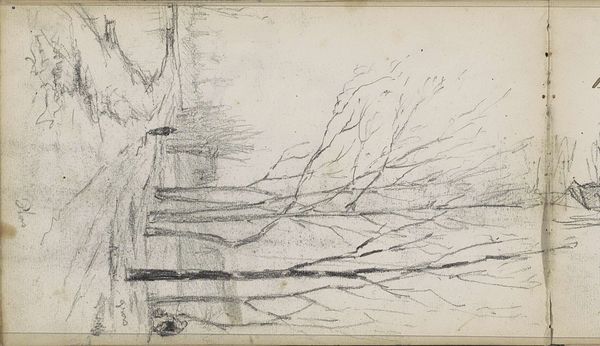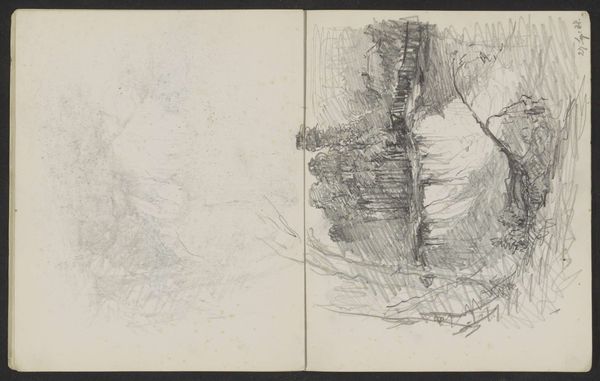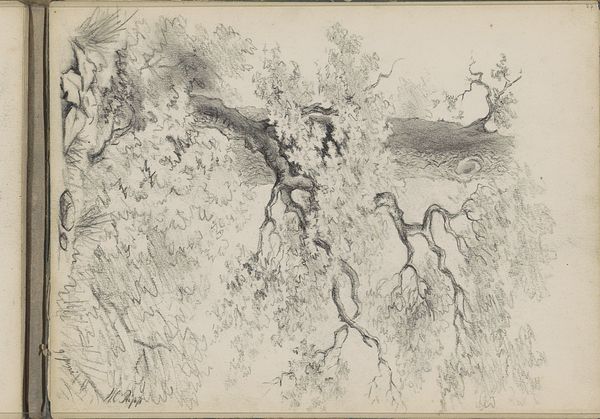
drawing, paper, pencil, graphite
#
tree
#
drawing
#
light pencil work
#
ink drawing
#
pen sketch
#
pencil sketch
#
landscape
#
paper
#
personal sketchbook
#
ink drawing experimentation
#
pen-ink sketch
#
pencil
#
line
#
pen work
#
graphite
#
sketchbook drawing
#
sketchbook art
Copyright: Rijks Museum: Open Domain
Egbert Rubertus Derk Schaap made this landscape drawing, featuring trees and a farmhouse, sometime between the late 19th and early 20th centuries. Schaap was active in a period where artists grappled with representing the natural world amidst rapid industrialization. Consider the cultural context: at the time, rural landscapes were often romanticized as a counterpoint to urban life. As we look closely, notice how Schaap’s loose sketch-like technique captures the essence of the landscape. The rough lines, bare trees, and simple rendering of the farmhouse evokes a raw, unidealized view. The absence of people may speak to both the individual's connection to nature and the increasing isolation that was felt as society modernized. This drawing subtly challenges the traditional idyllic portrayals of the countryside, reflecting a more complex relationship between the individual, nature, and the changing social landscape. It reminds us that even seemingly simple landscapes can be imbued with deeper social and emotional resonance.
Comments
No comments
Be the first to comment and join the conversation on the ultimate creative platform.
